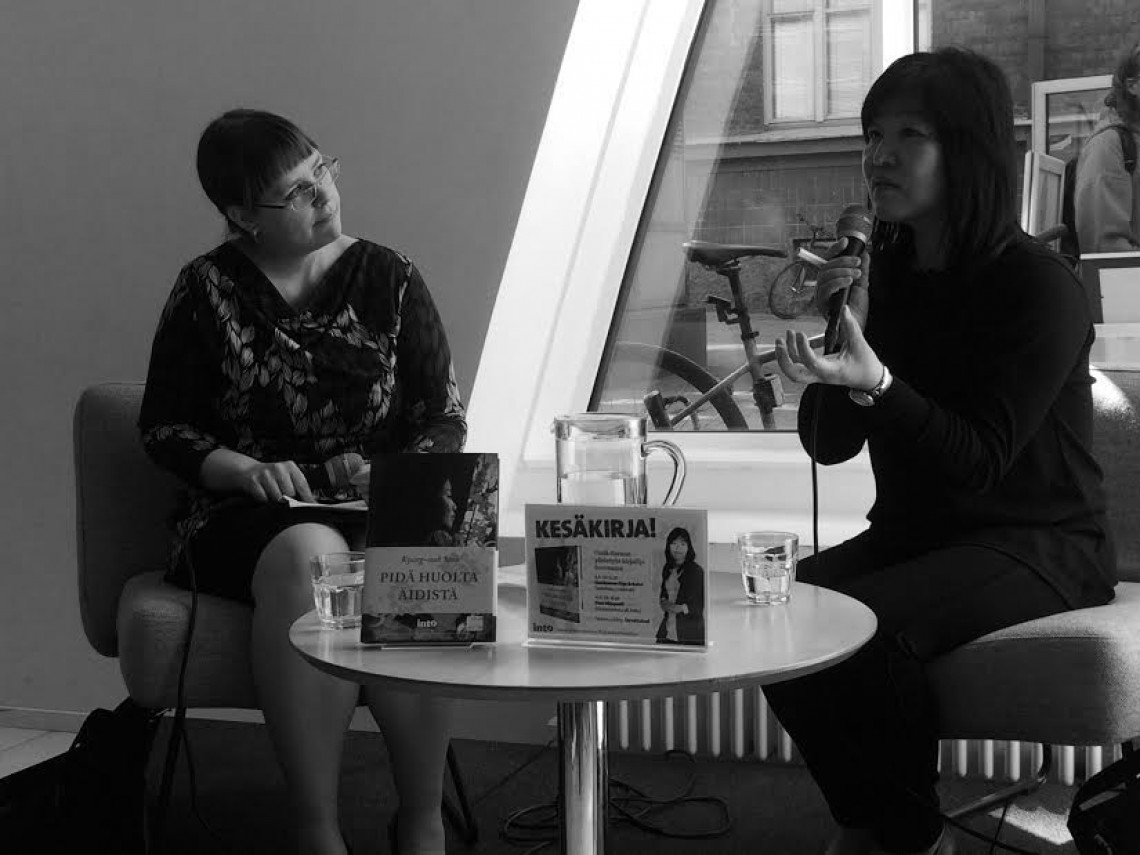
The collaboration between South Korea’s award winning author Kyung-sook Shin and the country’s most famous Finn, Taru Salminen, kicked off at Taru’s Seoul-based restaurant. Dialogue over food expanded to a literature collaboration, and there’s more to come.
Please look after mother is the first South Korean book published in Finnish. How did it all come about?
Kyong-sook: The book was first published outside of South Korea in English for the US markets. After success in the States, European agents took interest in the book and slowly but steady the recognizability reached Finland. I’ve only heard positive feedback about the novel from Finnish readers but I actually had no idea that it is the first Korean book translated into Finnish. What a happy surprise!
Our collaboration with Taru started when the president of the Finland- Republic of Korea Association recommended Please take care of mother to the Embassy of Finland in Seoul. He thought it would be great idea to publish the book in Finnish. The embassy contacted Taru, and we kicked off our collaboration at her restaurant in Seoul.
Taru: As the author and the translator, we’ve been in contact throughout the project: in the translation process you have to think about cultural differences. For example, names of South Korean cuisine and some elements of the spiritual life needed to be explained a bit more thoroughly in Finnish. For Koreans, it is natural to think about passing on to the next reality from another, but for Finns existence is more simple.
How do you see the future of literature in South-Korea and Finland?
Kyong-sook: The situation is changing in Asia as it is in Europe also. Traditional books are not selling as much as people are finding easier accesses to written word by new medias. The general interest for literature has not decreased and its status in South Korean culture is still very strong.
The two countries have more in common than one could realize: like Finland, also South Korea has been dominated by other nations and is building up self confidence as a country. South Korean literature is experiencing a new awakening; under the years of dictature writers most important task was to rebel against the current situation in the country. Today authors have different voices and topics are more diverse. Such subjects as spiritual life and death used to be tabus, but I’m very happy about the advancements we’ve seen.
What does Europe-Asia collaboration mean to you?
Kyung-sook: I feel like Asia is seen by many Europeans as a big blur of similar cultures and languages. Many people don’t realise the diversity of Asian countries. On the other hand in Asia people are very interested in Europe and it is easy to specify differences between distinct parts of the continent. I’d like to see Europeans taking the first step towards Asia for a change: showing general interest and proposing collaborations.
Taru: I believe collaboration between Asia and Europe enriches both parties. I hope that through different cooperations people would learn from different ways of thinking, also learn to appreciate our variety as humans. When taking things to a practical level, I would like to see new media collaborations made about dialogue between Asia and Europe.
What are your collaboration plans for the future?
Kyung-sook: We’re very excited about a new project, which involves a new novel I’ve been working on for the past 3 months. I’d like to publish more books in Finnish so I hope that the first one turns out to be a success here so that we can continue the good work. We’ll see – it’s a dialogue between two cultures.
More stories and opportunities for Europe-Asia collaboration in the creative industries at EARS on Helsinki 2015.
